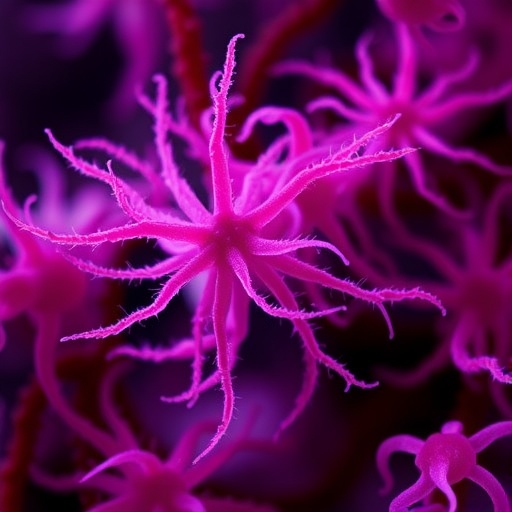In recent years, the emergence of antifungal resistance in Candida species has raised alarms within the medical community. Among these, Candida tropicalis has become a significant concern, especially in patients suffering from vulvovaginal candidiasis. A new study authored by Tasneem et al. delves into the molecular mechanisms underpinning multiple antifungal drug resistance in Candida tropicalis, highlighting its increasing prevalence and the potential threat it poses to women’s health.
$Candida tropicalis is traditionally considered a relatively less problematic member of the Candida genus, often overshadowed by Candida albicans. However, the rising prevalence of antifungal resistance in C. tropicalis suggests a departure from this perception. The study showcases a disturbing trend wherein this organism has developed resistance mechanisms to commonly used antifungal agents, including azoles and echinocandins, raising red flags about its management and treatment options.
The research team focused primarily on identifying the genetic expressions associated with antifungal resistance in C. tropicalis, employing cutting-edge molecular biology techniques. By isolating specific genes believed to be responsible for drug resistance, the researchers aimed to elucidate the underlying pathways that C. tropicalis utilizes to survive despite the presence of antifungal medications. These investigations reveal that the mechanisms of resistance are multifaceted and complex, involving the upregulation of efflux pumps and the mutation of targeted drug-binding sites.
.adsslot_aAqUBsFX62{ width:728px !important; height:90px !important; }
@media (max-width:1199px) { .adsslot_aAqUBsFX62{ width:468px !important; height:60px !important; } }
@media (max-width:767px) { .adsslot_aAqUBsFX62{ width:320px !important; height:50px !important; } }
ADVERTISEMENT
Efflux pumps play a crucial role in the resistance of many pathogens, and C. tropicalis is no exception. The study reveals that the overexpression of certain transport proteins allows the fungus to effectively export antifungal agents out of its cells, thereby mitigating their toxicity. This finding emphasizes the need for new therapeutic strategies that could either inhibit these efflux mechanisms or utilize agents that are less affected by them, highlighting a gap in current antifungal treatment protocols.
Moreover, the research team also noted mutations in genes that encode crucial targets for antifungal drugs, further complicating the treatment landscape. These mutations lead to structural changes in the target proteins, rendering the antifungal agents less effective. Understanding these alterations is critical for developing new drugs or repurposing existing ones to overcome the resistance exhibited by C. tropicalis.
Another significant aspect of the study is its exploration of environmental factors contributing to the rise of antifungal resistance in Candida tropicalis. The authors suggest that the overuse of antifungals in clinical and agricultural settings acts as a selective pressure, fostering a survival advantage for resistant strains. This phenomenon underscores the necessity for more stringent usage guidelines for antifungal agents to preserve their efficacy in treating fungal infections.
In addition to the technical details surrounding gene expression and resistance mechanisms, the implications of this research are significant for healthcare practitioners and patients alike. The rising threat of drug-resistant C. tropicalis infections could lead to more complicated clinical outcomes, necessitating a reevaluation of current treatment approaches for vulvovaginal candidiasis. Patients experiencing recurrent infections may require alternative diagnostic and therapeutic pathways to effectively manage their conditions.
The study also emphasizes the need for continued surveillance of antifungal resistance trends and the importance of integrative approaches to combat this public health issue. Clinicians should be trained to recognize the signs of antifungal treatment failure and consider the possibility of drug-resistant C. tropicalis when encountered with resistant infections.
As part of the research’s broader implications, public health strategies aimed at education regarding antifungal stewardship and appropriate usage are essential. Raising awareness among healthcare providers and patients regarding the risks associated with the overuse of antifungals can play a critical role in curbing the rise of resistant strains.
While immediate action is necessary, the study also provides a foundation for further research into novel antifungal therapies. By pinpointing the molecular underpinnings of resistance in C. tropicalis, scientists can strive to develop targeted treatment regimens that consider the specific vulnerabilities revealed in this investigation.
The findings presented by Tasneem et al. highlight not just a single species’ evolution but reflect a broader concern regarding fungal infections. The results are particularly alarming given the increasing incidence of antifungal resistance in various fungi linked to human infections, reinforcing the urgency for both scientific and clinical communities to unite against this emerging threat.
In conclusion, the exploration of the molecular mechanisms of antifungal resistance in Candida tropicalis underscores a critical public health issue that extends beyond individual cases. Understanding these genetic factors and resistance pathways is paramount for developing effective therapeutic strategies while promoting responsible antifungal use. As this research continues to unfold, it serves as a wake-up call to the scientific community and healthcare practitioners alike to take proactive measures against the looming threat of antifungal resistance.
Subject of Research: Molecular mechanisms of antifungal drug resistance in Candida tropicalis
Article Title: Exploring the molecular mechanisms of multiple antifungal drug-resistant genes expression in Candida tropicalis: an emerging threat in vulvovaginal candidiasis patients.
Article References:
Tasneem, U., Khattak, B., Fozia, F. et al. Exploring the molecular mechanisms of multiple antifungal drug-resistant genes expression in Candida tropicalis: an emerging threat in vulvovaginal candidiasis patients.
Int Microbiol (2025). https://doi.org/10.1007/s10123-025-00657-4
Image Credits: AI Generated
DOI: https://doi.org/10.1007/s10123-025-00657-4
Keywords: antifungal resistance, Candida tropicalis, vulvovaginal candidiasis, molecular mechanisms, genetic expression, public health, treatment strategies.
Tags: antifungal drug resistance in yeastantifungal management challengesantifungal treatments and resistance pathwaysazole and echinocandin resistanceCandida species in medical researchCandida tropicalis antifungal resistanceemerging Candida species threatsgenetic expressions in Candida tropicalismolecular mechanisms of Candida resistanceresearch on antifungal resistance mechanismsvulvovaginal candidiasis concernswomen’s health and fungal infections





